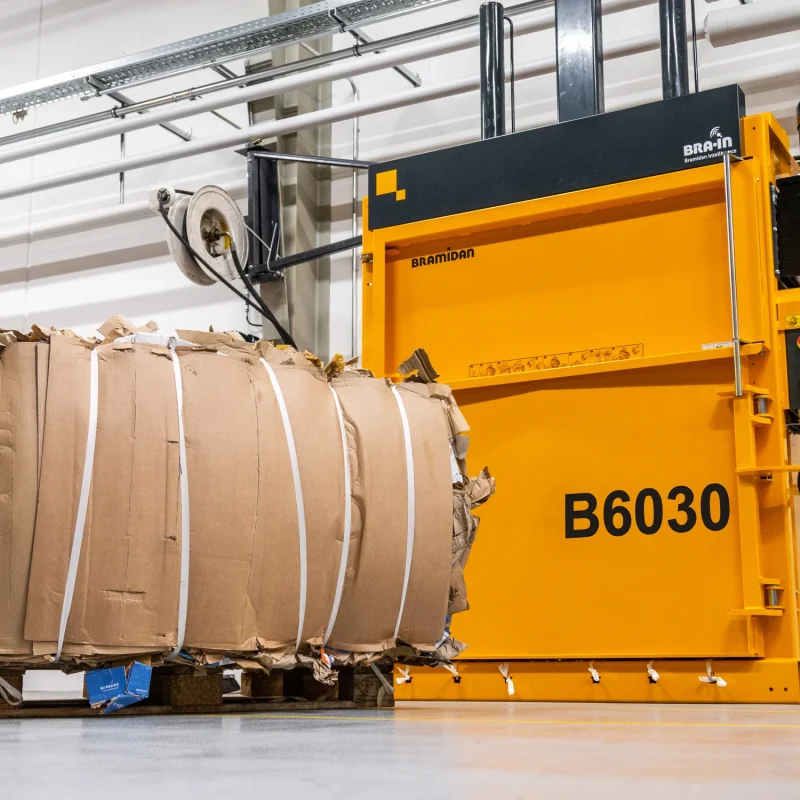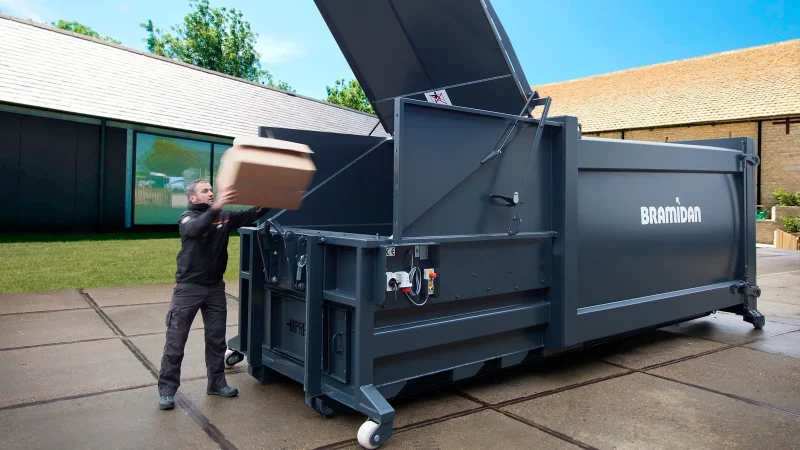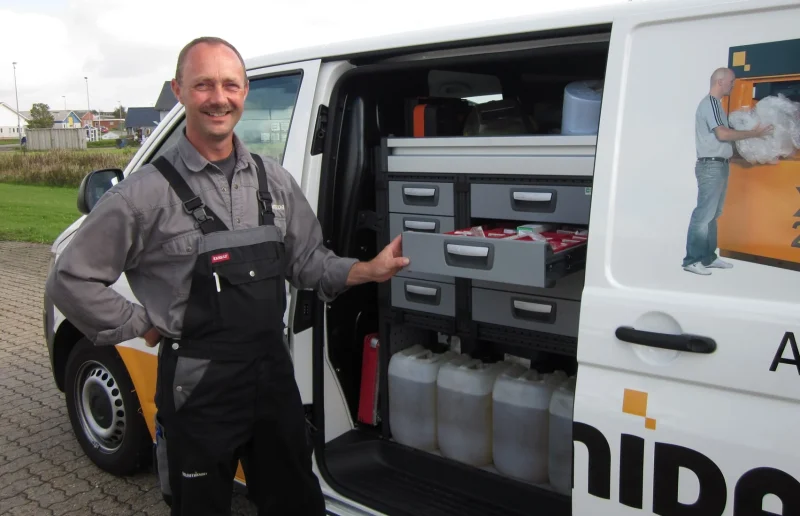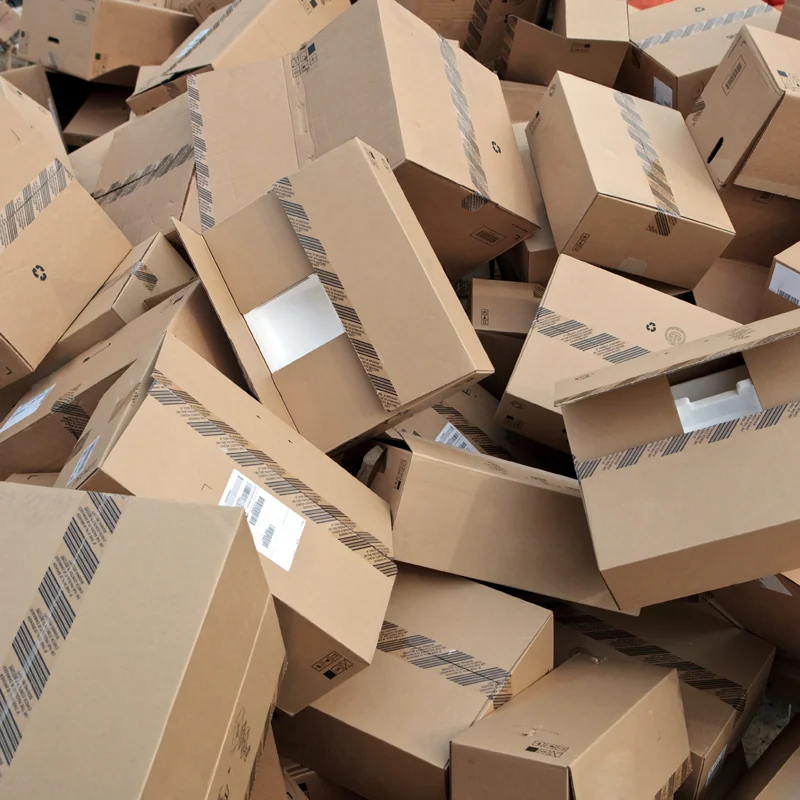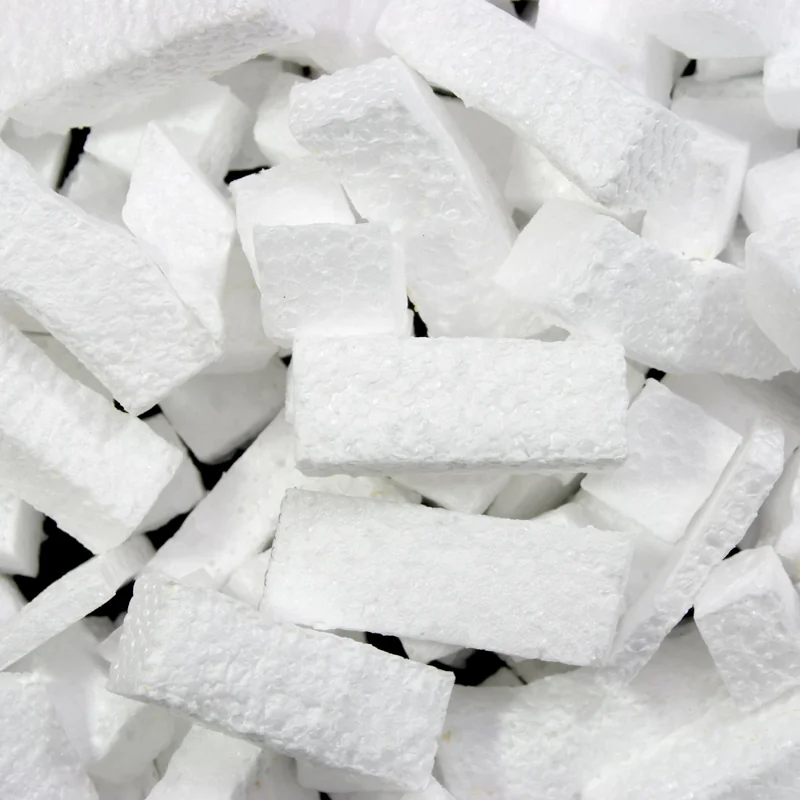Schools & Universities

At Bramidan, we understand the unique challenges faced by public sector entities and are committed to providing tailored waste solutions to meet your needs.
Explore our comprehensive suite of offerings designed to address the diverse array of waste streams encountered in public sector operations, and achieve your waste management goals.
Challenges
- Time spent on waste handling
- Limited space & overfilled containers
- Difficulty managing various waste types separately
- Limited income opportunities from recyclables
- Higher carbon footprint
- Expensive container haulings
- Strict waste handling policies
Benefits
- Saves valuable time
- Reduces waste collections
- Efficient waste management
- Reliable sustainable recycling solution
- Generate an income from recyclable materials
- Optimises space utilisation
- Enhances workplace cleanliness
Recommended equipment
Explore our range of vertical and horizontal balers, as well as self-contained and stationary compactors, below.
Vertical balers
Horizontal balers
Stationary and mobile compactors
Services

BRA-IN
Service
Rent, lease or buy
Explore common waste types in the public sector
Discover the world of waste management for sustainable practices.
Find your specific waste type and unveil our curated selection of machines designed for optimal efficiency and eco-friendly solutions.
Don’t see your waste type? View all of them here.
Paper & cardboard
Soft & hard plastic waste
EPS & Foam
Waste analysis in the public sector
Schools and universities, as part of the public sector, encounter a wide array of waste due to the diverse activities that take place on their campuses.
Here are some of the common types of waste they manage:
- Paper waste: Consists of used notebooks, textbooks, exams, handouts, flyers, and administrative paperwork.
- Packaging waste: From deliveries of school supplies, cafeteria food shipments, and equipment for various departments.
- Food waste: Generated from cafeterias, dining halls, and campus events, including uneaten food and preparation scraps.
- Electronic waste (e-waste): Old computers, printers, lab equipment, and other outdated or broken electronics that require special disposal.
- Laboratory waste: Chemicals, biological materials, glassware, and other items from scientific research and educational labs.
- Plastic waste: Single-use plastics from packaging, bottles, and bags, as well as items like binders and folders.
- Textiles: Worn-out uniforms, lost-and-found items that are never claimed, and old athletic gear.
- Furniture and equipment: Desks, chairs, and other furnishings that are no longer needed due to wear or campus upgrades.
- Construction and renovation waste: Debris from new construction, remodels, or demolition projects on campus.
- Hazardous waste: From maintenance activities, including cleaning supplies, batteries, and light bulbs, which require special disposal.
- Green waste: Leaves, branches, and landscaping trimmings from the upkeep of campus grounds.
Educational institutions typically focus on reducing waste through recycling programs, educational campaigns to promote sustainability among students and staff, and efforts to repurpose and recycle electronics and furniture.
Many also participate in composting initiatives to manage organic waste and implement green purchasing policies to minimize the generation of waste from the start.
Fill in the form and we will contact you
Any Questions? Get in touch


